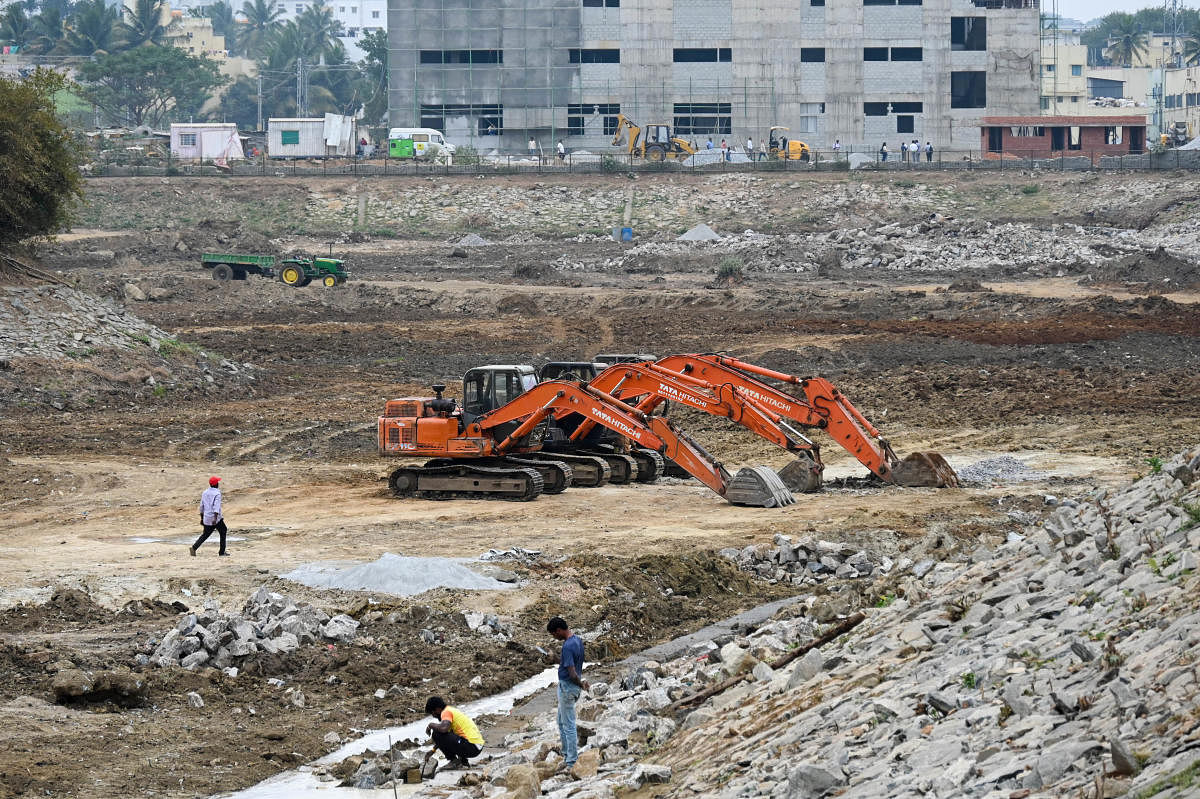
In the run-up to assembly polls, political parties are looking for issues that swing votes, and include those points in their manifestoes as their electoral promises.
Water scarcity is a burning issue across Karnataka, more so in Bengaluru. Political parties avoid addressing this problem. They try to claim credit for a few isolated water projects but fail to fix water issues.
The only way to create a political will is to educate the public about the true nature of the problem and available solutions and nudge them to demand an electoral commitment from all political parties. That’s what lake manifesto is about.
The state already has multiple agencies to work on these solutions. But they can’t fulfil their duties because of political interference. If the political parties commit to their cooperation, various agencies can solve these long-pending issues quickly.
Understanding the problem
At the core is a single agency called Karnataka Tank Conservation and Development Authority (KTCDA), which is supposed to protect, conserve and rejuvenate lakes/tanks in the state.
At present, KTCDA is dysfunctional. It suffers from the lack of:
- Water experts (geologists, hydrogeologists, limnologists, toxicologists, etc.)
- Database (how many lakes exist, their location and their present condition)
- Roadmap to maintaining or rejuvenating the lakes
- Detailed project report (that defines the action needed for each lake)
- Single-window clearance for corporate funders, NGOs and other contributors
- Action plan to clear illegal encroachment at lakes and buffer zones
- Plan to feed each lake with good water by connecting stormwater drains/feeder channels
- Plan to prevent sewage and industrial effluents from entering the lakes
- Control over government departments such as BBMP, BDA, MI, BWSSB, etc.
The public remains unaware of these failures because KTCDA is not mandated to put all this information and plans in the public domain. This lack of transparency can promote corruption.
The solutions
To fix the problems, KTCDA must:
- Reconstitute the Technical Approval Committee (TAC) with water experts.
- Prepare a digitised map of lakes and their feeder stormwater network. Make it public, so that people can check it on even mobiles.
- Survey all water bodies irrespective of size, and add them to the digital map. It must include the specifics of inlets and outlets for each lake.
- Mark the buffer zone and encroachment for each lake on the map.
- Set up an issue tracker where the public can raise alarm about pollution or encroachment.
- Make it mandatory for projects to be sanctioned only after DPR is approved by the TAC, irrespective of size and custodianship of the lake. No lake/tank work must be done without approved DPR by anyone through any fund including government allotments or sponsorships.
- Place all DPRs in the public domain, so that sponsors can choose their lakes and participate freely.
- Set up a single-window clearance process for the development and rejuvenation projects.
- Stop building roads and bridges inside lakes or buffer zones.
- Monitor the quality of water in real-time at strategically selected points so that sources of pollution can be traced and eliminated.
All political parties must support this cause in the assembly by passing resolutions to take time-bound actions with a specific budget allocated for these actions.
They must also pass new statutes or amend existing statutes as follows:
- Citizen participation in all activities must be made mandatory, in accordance with the 73rd and 74th Amendments in the Constitution of India.
- Karnataka Town and Country Planning Act should be amended to treat all lakes, wetlands and drains as sacrosanct assets, and the conversion of “dead” and alive lakes and drains should be banned.
- Treat unauthorised rejuvenation or modification of water bodies as a violation of the Environment Protection Act, and punish the public servants (both officers and elected representatives) who either initiate such an endeavour or turn a blind eye to such activity.
- Amend the KTCDA Act to constitute local lake committees at the ULB level to manage the operations. Also, constitute committees at the district and state levels to monitor the performance of the local committees.
- DPRs must not limit to the deepening of the lake body but must address the environmental and ecological aspects, including rainwater harvesting, groundwater recharging, and flood mitigation.
- Amend KTCDA Act to correlate the state of water assets (lakes and drains) in any area to the water balance of that area, and the water stress prevailing in the area.
All of the above factors are “hygiene” factors (as opposed to “nice to have” factors). All political parties must commit their nonpartisan support to these points.
Parties must deploy their leaders in all villages, towns and city wards to push for the implementation of these points. Their role is more significant after the elections are over, as only they can maintain pressure on the government to perform relentlessly. Even losing candidates are equally responsible for this, and working on these things can help them earn goodwill.
Project velocity
We all suffer from a cognitive bias called “recency bias”, in which we favour recent events over older events and long-term experiences. Politicians are well-aware of this. That’s why we see a flurry of activities and launches of large projects just before the elections.
The incumbent politician reserves a sizable portion of her/his discretionary budget for such election-oriented spending. The voters fall into this trap and pardon the politician for not acting for so long. Another trick is to brag about the huge amount spent on a project.
To ensure real steady progress, the government must introduce a metric called “project velocity”, which shows the actual progress of any project against time. It focuses on the outcome, not on the money spent.
This makes it impossible for any politician to put up a last-minute show to falsely impress her/his voters.
(The authors are lake and water activists based in Bengaluru)